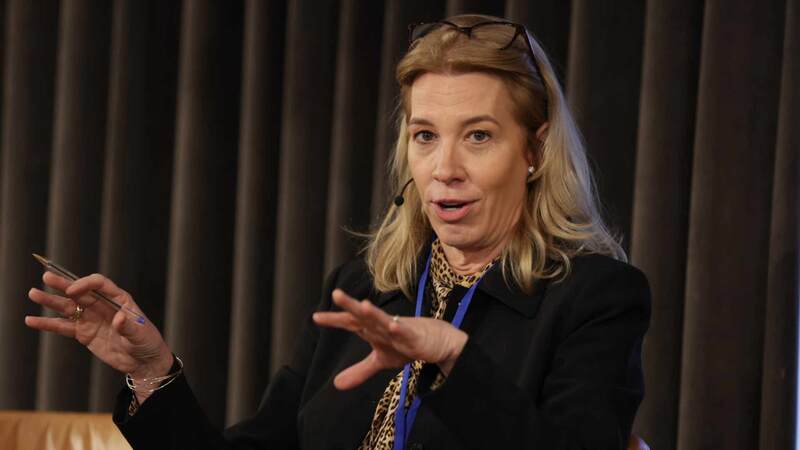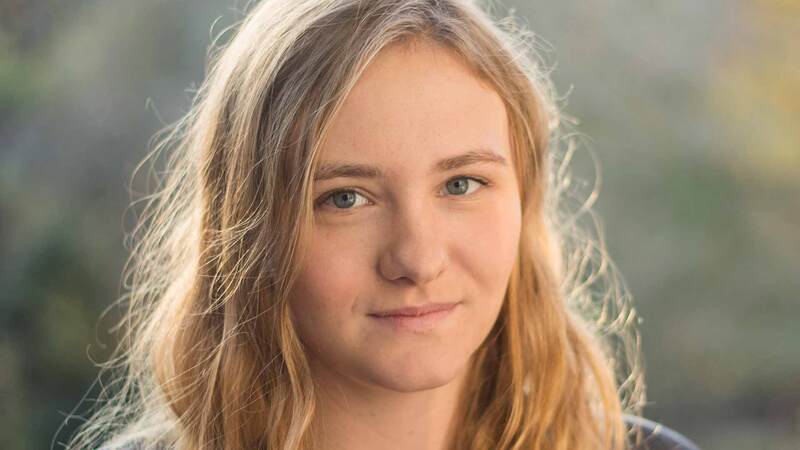You are viewing your 1 free article this month. Login to read more articles.
Review of 2018: Publishers
In our Review of 2018, we look at the earnings of the UK's four biggest publishers through the TCM last year.
1. Penguin Random House: Obama buffers contractions
 PRH’s lowest-ever TCM market share was mostly a problem shared across the divisions, despite some huge bestsellers. At £39.6m, Transworld was down 9.6% year on year, recording its second-lowest TCM haul. Lee Child (+5% to £7.9m) aside, its big brand authors were down—Dan Brown (–50% to £2.4m), Shari Lapena (–31% to £1.6m) and Paula Hawkins (–59% to £1.5m)—albeit on strong 2017s. PRH Children’s is still the biggest beast in the sector, shifting £53.8m. But it was 5.8% down on 2017, and for the first time in its history, the division’s share of the kids’ market slipped under 15%.
PRH’s lowest-ever TCM market share was mostly a problem shared across the divisions, despite some huge bestsellers. At £39.6m, Transworld was down 9.6% year on year, recording its second-lowest TCM haul. Lee Child (+5% to £7.9m) aside, its big brand authors were down—Dan Brown (–50% to £2.4m), Shari Lapena (–31% to £1.6m) and Paula Hawkins (–59% to £1.5m)—albeit on strong 2017s. PRH Children’s is still the biggest beast in the sector, shifting £53.8m. But it was 5.8% down on 2017, and for the first time in its history, the division’s share of the kids’ market slipped under 15%.
The UK’s top-earning book of 2018 was Michelle Obama’s Becoming (£7.8m), a nice Christmas cracker for Penguin, which was PRH’s strongest division in 2018. (A note: BookScan does not separate PRH’s adult divisions as the publisher does, so we will look at Penguin and Random House as a whole.) While there were fine returns for Jordan B Peterson (+5,315% to £2.6m), Stephen Fry (+87% to £2.3m) and Jojo Moyes (+41% to £2.5m), Penguin (+3% to £107.5m) was just a smidgeon ahead of the overall TCM growth of 2.1%.
Random House fell 6.3% to £112.8m, despite the ongoing rise of Yuval Noah Harari right (+29% to £4.6m) and a standout year from Yotam Ottolenghi (+106% to £3.5m). Its hits just weren’t as big as in 2017. Mary Berry’s latest was 47% down on her 2017 title, and Christmas was somewhat muted: RH’s top 10 autumn releases earned £11.6m in 2018, 11% down on 2017’s return (£13.1m).
2. Hachette: Hodder propels solid growth
 A solid year across Hachette, with Hodder (up 7.3% to £46.6m) staking out its position as the group’s top division through BookScan for a second year in a row. Imprint John Murray had one of the biggest Christmas hits in Stephen Hawking’s Brief Answers to the Big Questions, while Hans Rosling’s “the world is not as crap as you think it is” tome, Factfulness (Sceptre), was a surprise spring hit.
A solid year across Hachette, with Hodder (up 7.3% to £46.6m) staking out its position as the group’s top division through BookScan for a second year in a row. Imprint John Murray had one of the biggest Christmas hits in Stephen Hawking’s Brief Answers to the Big Questions, while Hans Rosling’s “the world is not as crap as you think it is” tome, Factfulness (Sceptre), was a surprise spring hit.
Little, Brown was up 10.4% to £41.9m, 17% of which was generated by J K Rowling/Robert Galbraith (£4.2m) and Michael Wolff’s Fire and Fury (£2.5m).
For a sobering seven years in a row, we have had to report that Orion recorded its lowest-ever TCM annual return. Happily, 2018 has stopped that run, with the division up 8.9% to £35.6m. OK, that is still its fourth-worst TCM showing since records began, but growth is growth. Old pro Ian Rankin contributed £1.8m, imprint Trapeze had two Christmas hits in Noel “The Supervet” Fitzgerald’s Listening to the Animals and The Ordnance Survey Puzzle Book, while Crime Writers’ Association Gold Dagger winner Steve Cavanagh looks like a star of the future.
Headline plummeted 19.5% to £13m. A big part of the drop was down to the Martina Cole-sized hole it had in its autumn schedule as the crime queen was not able to deliver her usual hardback—and its almost guaranteed Original Fiction number one and £1m in sales. The hits were thin on the ground: in 2017, six Headline titles topped £500,000; in 2018 just one did, Cole’s mass-market paperback Damaged (£631,000).
Quercus’ above-the-market growth (+3.3% to £14m) was led by Ben Brooks’ Stories for Boys Who Dare to Be Different (a.k.a. ...Rebel Girls but for fellas) and Geraint Thomas’ memoir of his Tour de France win. Octopus dipped 5.6% to £18.8m.
3. HarperCollins: Oliphant drives one El of a year
 Throughout the course of 2018, we have discussed Gail Honeyman, David Walliams and illustrator Tony Ross at length. We need not dwell on them too much further, but the three generated £22.2m in 2018, 17.1% of HarperCollins’ TCM takings.
Throughout the course of 2018, we have discussed Gail Honeyman, David Walliams and illustrator Tony Ross at length. We need not dwell on them too much further, but the three generated £22.2m in 2018, 17.1% of HarperCollins’ TCM takings.
Its share of the children’s market rose a relatively slim 2.7%, but the kids’ arm posted a record £43m to claim an 11% share of that market—the closest it has ever been to rival PRH Children’s. As BookScan does not have a HarperCollins Children’s Books group, and some HCCB titles are coded as HarperCollins at an imprint level (c’mon, people, respect the metadata!) these figures combine HCCB and Collins titles in BookScan’s children’s categories. In addition to Walliams, HCCB had good showings from David Baddiel (+33% to £1.6m), Judith Kerr (+8% to £1.4m) and the late Michael Bond (+25% to £1.5m).
HC’s adult fiction sales rose 10.6% to £43.5m, with that £4.6m jump roughly equivalent to Honeyman’s takings. The clever transition of Gill Sims from Facebook brand to fiction author has worked a treat for HarperFiction: Sims’ sales rose a massive 188% to £1.5m. George R R Martin returned with a new book for HarperVoyager, but his overall sales declined 2.5% to £2.8m, with no new TV “Game of Thrones” to drive his backlist. Raise a glass, too, to saga star Dilly Court, who had a 25% bounce in 2018 (to £1.5m).
Non-fiction sales across the group had an almost identical rise as fiction, up 10.9% to £43.1m. SAS hardman Ant Middleton’s First Man In (£2.2m) was HarperNonFiction’s top earner, with Max Hasting’s Vietnam (William Collins,£1.5m) and Henry Firth and Ian Theasby’s vegan cookery title BOSH! (HQ, £1.3m) in second and third place respectively.
4. Pan Macmillan: Records tumble as Kay excels
 Last year was the second time Pan Macmillan has crossed the £70m mark through BookScan, with only 2016’s £77.7m eclipsing 2018’s total.
Last year was the second time Pan Macmillan has crossed the £70m mark through BookScan, with only 2016’s £77.7m eclipsing 2018’s total.
Non-fiction was a big part of the success, up a whopping 19.2% year on year to £23.7m—Pan Mac’s biggest haul in the category in a decade and a half. Picador earned 28% of those sales, led by Adam Kay’s £3m from This is Going to Hurt and The Secret Barrister’s anonymous courtroom exposé, which earned £1.1m.
Bluebird, and its star Joe Wicks, also soared. The wellness imprint earned £6.6m, 71% of which was generated by Wicks—that does represent a 22% decline year on year for “The Body Coach”, but he was coming from a dizzying height.
And Pan Mac’s fiction side recorded its best ever BookScan year, up 11.5% and nudging past the £30m mark for the first time in its history. Mantle had the biggest hit with C J Sansom’s return of Matthew Shardlake, Tombland, which sold 167,000 units for £1.8m. Mantle also published new recruit Kate Mosse, poached from Orion, whose first outing with the publisher earned nearly £500,000 in hardback format.
It was also a good year for the big fiction beasts Peter James (+25% to £2m) and Jeffrey Archer (+9.2% to £1.4m), though David Baldacci was 1.7% down on 2017 (to £2.1m).
Slightly letting the side down was Macmillan Children’s Books, which had a 1.4% slide to £22.2m. This does require some context, though: MCB was coming off a record 2017, and 2018’s total is its third-best since records began—its top three years on record have all come since 2016. Julia Donaldson and her illustrators are the key, responsible for 46% of MCB’s volume and 42% of its value last year. Rod Campbell contributed £1.5m to the cause, too.
Read our Review of 2018: Indepedent Alliance here and our Review of 2018: Specialist Publishers here.













